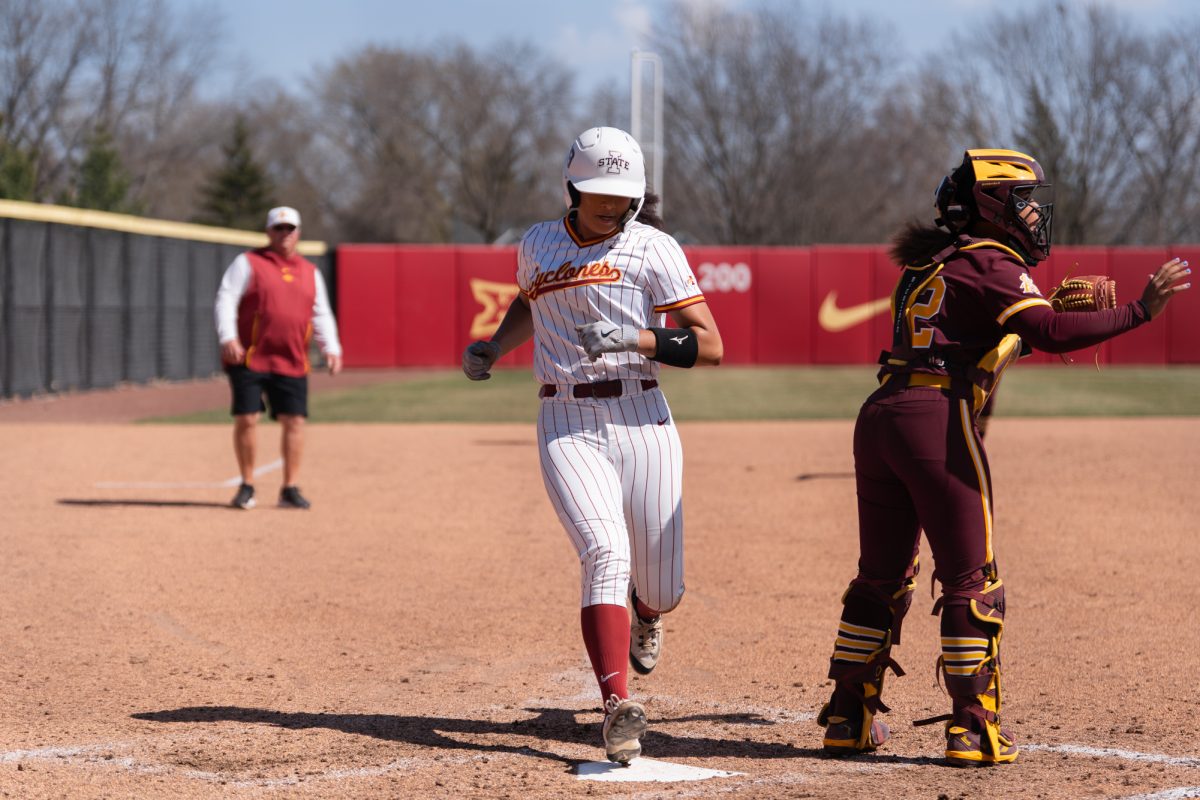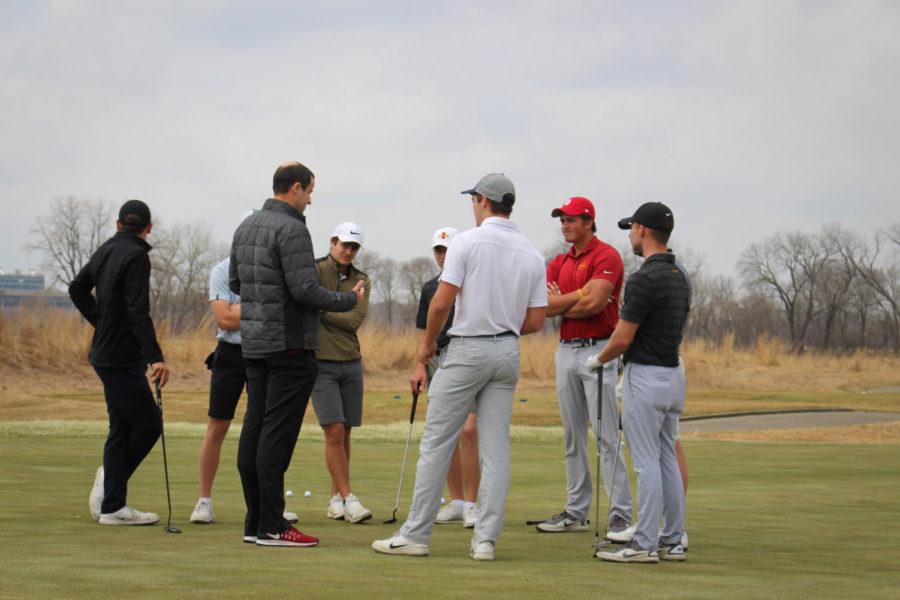Holst: Playing football on Thursday is a bad idea
Chris Jorgensen/Iowa State Daily
Iowa State fans cheer and hold up the ‘Cyclone Power’ banner after an Iowa State touchdown against Northern Iowa.
September 27, 2017
Are you going to the football game on Thursday night? It certainly seems like the best way for a low-profile football program like Iowa State’s to get a primetime television slot. The exposure, attention and most of all, the money can be good for both the program and the players. However, playing football on Thursday nights, at both a college and professional level, is largely harmful to the players while benefitting the NFL and the NCAA.
Allow me to begin this with a disclaimer: Iowa State, at least this year, did Thursday night football the right way. Last weekend they had a bye week, meaning that instead of only four days of practice and recovery time, the Cyclones had 11. This gives the team plenty of time to ensure that they put on a quality performance. This is not always the case when college and professional teams play on a Thursday night.
One point that is important to make is that nobody likes Thursday night football in the NFL. Coaches, players and viewers all agree that it is a subpar product.
There seems to be an agreement that the players are playing with more fatigue due to having only three days of rest and preparation (in college, it would be four, but similar concerns exist). This, in most cases, leads to worse football, whether that means games are low scoring or blowouts.
Seattle Seahawks cornerback Richard Sherman called Thursday night football a “poopfest,” a thought that has been echoed by coaches like John Madden and large swaths of fans alike.
Also, it is quite possible that there are additional health concerns to players due to a lack of recovery time. While numbers do not indicate that there is a significant spike in injuries on Thursday night games, players and coaches report feeling worse after Thursday night games and also say they feel they are at a much higher risk for injury.
It is worth noting that oftentimes players downplay injuries and decide to play through them as the season goes on, and those injuries may go unreported. There is no reason to believe these same concerns don’t also exist in the college game.
All of this begs the question: why have these games in the first place? Money. Owners want that primetime television money and they get it at the expense of the players and the viewer. People will watch football, even bad football, almost out of habit.
The bottom line is this. Playing football is bad for you. After athletes play a full game of football, they need time to recover in order to do it again next week. The least the owners or the NCAA can do is wait the full week. God knows they can afford it.







